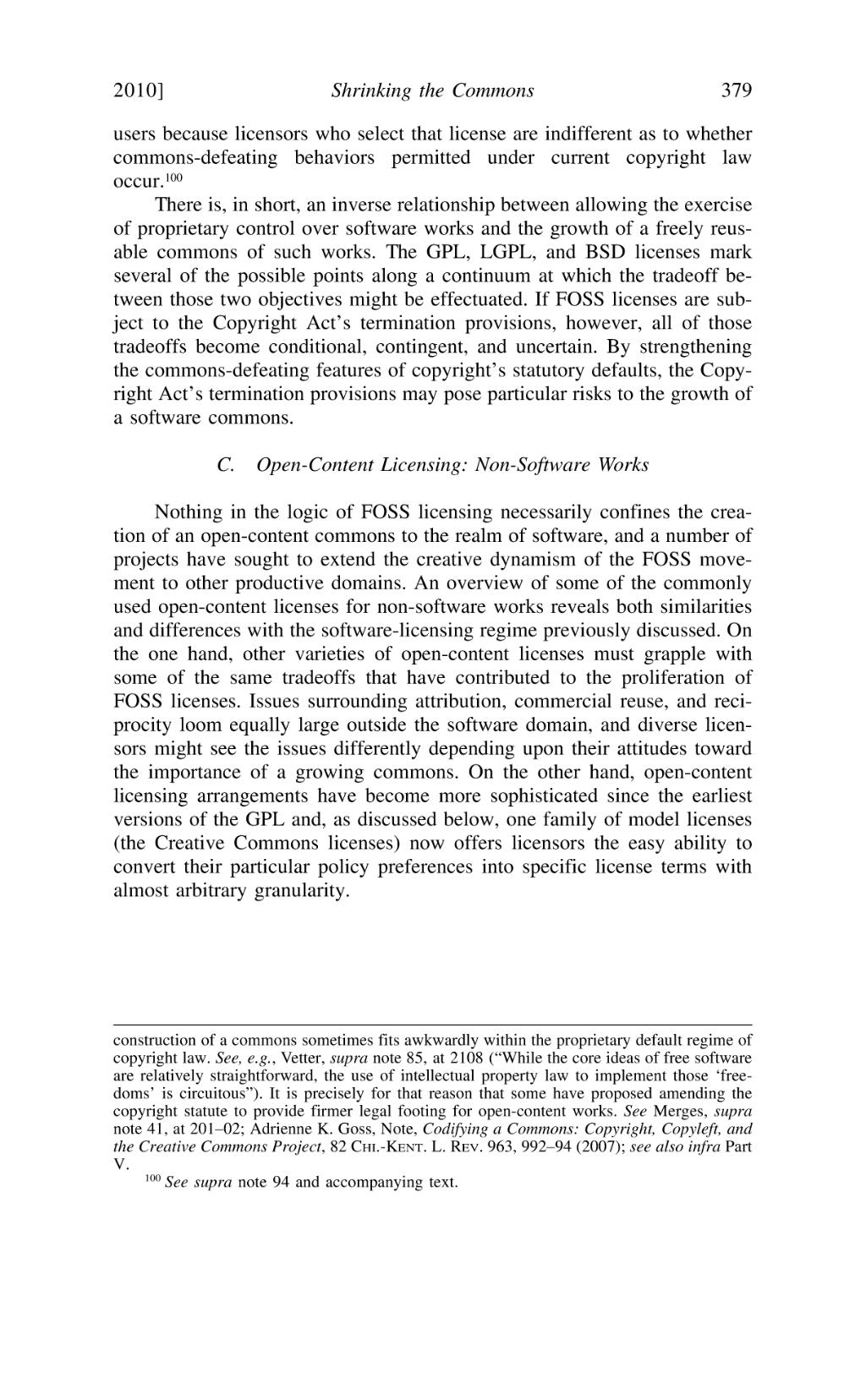users because licensors who select that license are indifferent as to whether commons-defeating behaviors permitted under current copyright law occur.[1]
There is, in short, an inverse relationship between allowing the exercise of proprietary control over software works and the growth of a freely reusable commons of such works. The GPL, LGPL, and BSD licenses mark several of the possible points along a continuum at which the tradeoff between those two objectives might be effectuated. If FOSS licenses are subject to the Copyright Act’s termination provisions, however, all of those tradeoffs become conditional, contingent, and uncertain. By strengthening the commons-defeating features of copyright’s statutory defaults, the Copyright Act’s termination provisions may pose particular risks to the growth of a software commons.
C. Open-Content Licensing: Non-Software Works
Nothing in the logic of FOSS licensing necessarily confines the creation of an open-content commons to the realm of software, and a number of projects have sought to extend the creative dynamism of the FOSS movement to other productive domains. An overview of some of the commonly used open-content licenses for non-software works reveals both similarities and differences with the software-licensing regime previously discussed. On the one hand, other varieties of open-content licenses must grapple with some of the same tradeoffs that have contributed to the proliferation of FOSS licenses. Issues surrounding attribution, commercial reuse, and reciprocity loom equally large outside the software domain, and diverse licensors might see the issues differently depending upon their attitudes toward the importance of a growing commons. On the other hand, open-content licensing arrangements have become more sophisticated since the earliest versions of the GPL and, as discussed below, one family of model licenses (the Creative Commons licenses) now offers licensors the easy ability to convert their particular policy preferences into specific license terms with almost arbitrary granularity.
- ↑ See supra note 94 and accompanying text.
construction of a commons sometimes fits awkwardly within the proprietary default regime of copyright law. See, e.g., Vetter, supra note 85, at 2108 (“While the core ideas of free software are relatively straightforward, the use of intellectual property law to implement those ‘freedoms’ is circuitous”). It is precisely for that reason that some have proposed amending the copyright statute to provide firmer legal footing for open-content works. See Merges, supra note 41, at 201–02; Adrienne K. Goss, Note, Codifying a Commons: Copyright, Copyleft, and the Creative Commons Project, 82 Chi.-Kent. L. Rev. 963, 992–94 (2007); see also infra Part V.
